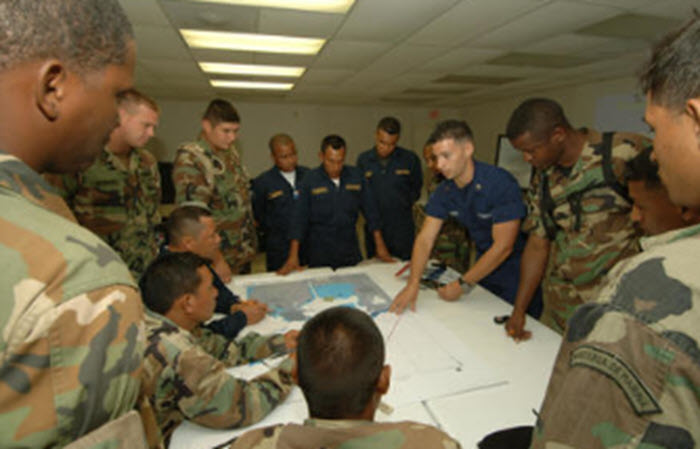The Panamanian National Border Service (SENAFRONT, in Spanish) and the Armed Forces of Colombia updated and evaluated their security operations in the fight against organized crime. The XV Panama-Colombia Regional Border Commanders Meeting took place April 23-26, 2019, in Panama City.
“This cooperation strengthens our capabilities to counter organized crime with a common approach, a unified doctrine, and directly focused resourcing,” Commissioner Eric Eduardo Estrada Delgado, SENAFRONT general director, told Diálogo. “It allows for timely, effective coordination from both countries’ armed and police forces.”
The operational outcome indicated that criminal structures of the Clan del Golfo, the National Liberation Army, and dissidents of the Revolutionary Armed Forces of Colombia were weakened. Authorities blocked the criminal mobility routes of Colombia’s largest gangs and reduced their influence in indigenous sectors.
“Although transnational threats work together, we hit their armed, logistics, and command and control components,” said Comm. Estrada. “Our actions forced these criminal structures to reformulate all their criminal activities.”
The results reinforced military and intelligence information exchange mechanisms. Authorities succeeded in securing the border area, all with help from U.S. Southern Command, allowing for more focused, dynamic, and provisional efforts from Panama and Colombia, the Colombian Military Forces General Command told the press. “From January to May 2019, authorities captured 100 people connected to drug and human trafficking; 10 of the detainees were leaders of the Clan del Golfo,” Comm. Estrada added.
Agreements reached
Participants agreed to increase special operations and the presence of land and naval security forces. They will also increase interdiction operations for crimes related to illegal immigration and human trafficking, which criminal gangs control.
“Cooperation is successful because plans and agreements reached in every meeting are enforced and have continuity,” Comm. Estrada said. “Work is reinforced with studies to understand changes in crime, in the same way as social dynamics, which allows for anticipated action plans to confront threats.”
Major instrument
The hard-to-reach Darien jungle, an ideal illegal migration route and narcotrafficking area, is the main challenge for military and security forces. To improve operations, authorities rely on the Intelligence Fusion Center, which gathers Colombian Army members and SENAFRONT experts.
Panama has the Punusa Intermediate Operational Base to deploy operations within the jungle and to immediately counter any warning detected, while Colombia has three military bases in strategic locations. “Everybody’s experience is the main instrument to win the war against organized crime,” Comm. Estrada said.
